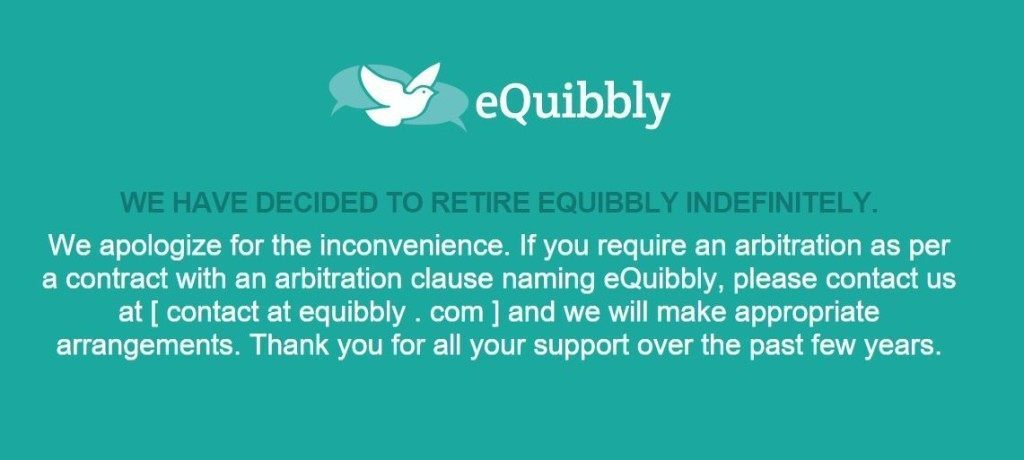The online dispute resolution site eQuibbly has ceased operations. A notice on its home page says:
WE HAVE DECIDED TO RETIRE EQUIBBLY INDEFINITELY
We apologize for the inconvenience. If you require an arbitration as per a contract with an arbitration clause naming eQuibbly, please contact us at [contact@equibbly.com ] and we will make appropriate arrangements. Thank you for all your support over the past few years.
Lance Soskin, the Canadian lawyer who founded the site in 2012, told me that he shut it down because there was not enough demand for online arbitration. The site provided legally binding arbitration conducted by former trial judges and experienced arbitration attorneys.
Soskin had hoped to encourage companies to include provisions in their contracts for online arbitration instead of litigation or in-person arbitration, but he was unable to get enough companies to do so. “People/companies to whom I provided a demo of the application seemed to be impressed — at least they said they were,” he wrote. “So I don’t believe that was the issue at all.”
The service had received generally positive press. A Lawyers Weekly article last year cited it as an example of disruptive innovation in legal technology:
This website offers mediations and arbitrations online via a digital forum where the adversaries can submit evidence and seek to resolve small disputes before arbitrators or mediators. The business charges a fixed fee for its services and promises a cost reduction of 35 per cent. Certainly, the process outlined on the website makes it look much easier and more accessible than traditional dispute resolution – and this is the whole point of any disruptive innovator: making things simpler, more accessible and more affordable.
But blogger Scott Greenfield wrote in 2014 that he believes eQuibbly and other ODR sites suffer from a number of failings.
But as much as I would love to see someone produce an alternative that can survive minimal scrutiny, no such service has as yet been created. And having given a good deal of thought to the inherent problems, it seems unlikely that there is any solution that will overcome the massive obstacles.
Soskin’s email also mentioned the difficulty of marketing arbitration to non-corporate customers such as individuals and small businesses. “The vast majority have never heard of arbitration and some seemed skeptical about it and whether the decision would be the same as in court.”
 Robert Ambrogi Blog
Robert Ambrogi Blog
